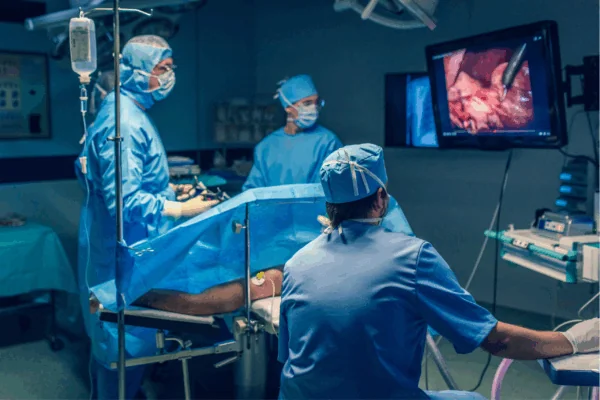A hernia is a very common condition that can affect people of all ages. It occurs when an internal organ — often part of the intestine — pushes through a weak spot in the muscle or tissue wall. This may cause a visible lump, discomfort, or pain, especially during physical activity. Hernias don’t heal on their own. While they may seem minor at first, they can worsen over time and sometimes lead to serious complications. Surgery is the only effective treatment.
At Phoenix Health, our experienced consultant surgeons provide rapid access to private hernia surgery. We offer both open and laparoscopic (keyhole) techniques, using the latest methods and high-quality mesh reinforcement when needed. With expert care, clear pricing, and full aftercare, we help you return to everyday life with comfort and confidence.











